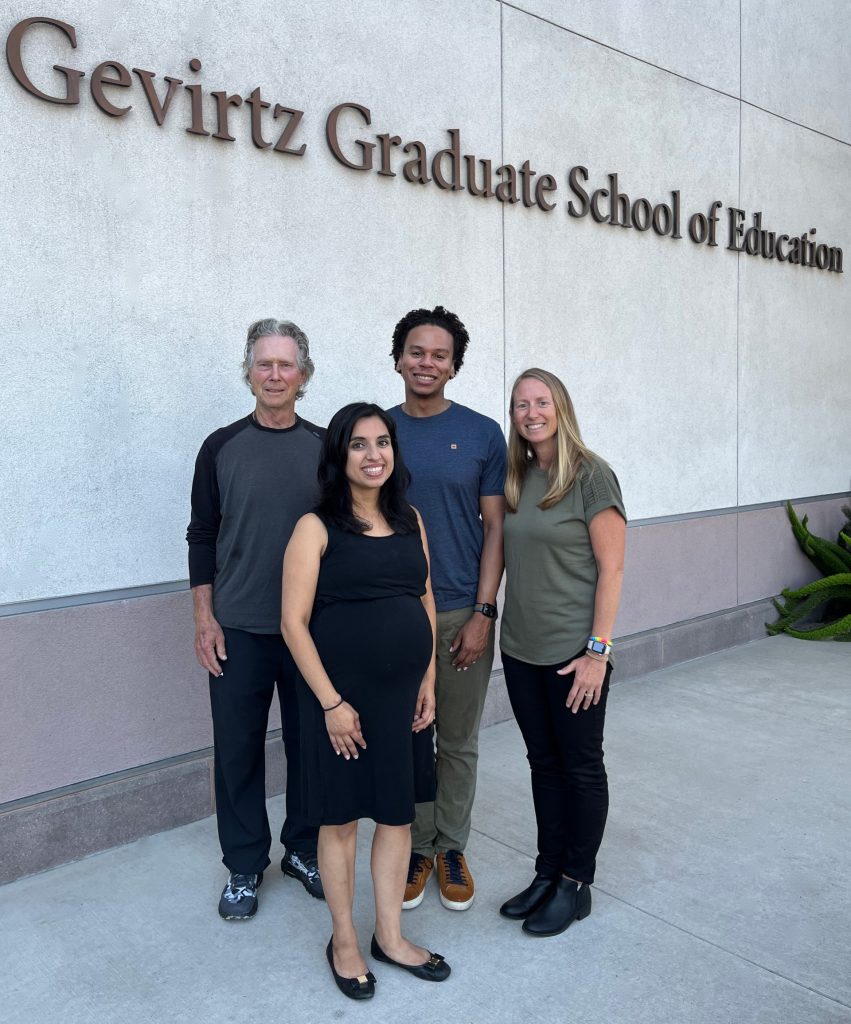UCSB to help launch national mental health workforce

UC Santa Barbara’s Gevirtz Graduate School of Education and three other universities are launching a national center to expand the country’s school-based mental health workforce to help students in need.
The Gevirtz school and the University of Wisconsin Madison, the University of South Florida, and the University of Iowa have been awarded a four-year, $10.4 million federal contract from the U.S. Department of Education for the project.
UCSB announced the funding on Oct. 19.
The Gevirtz School’s Department of Counseling, Clinical and School Psychology professors who will be working on the new Metrics Center are excited to launch it.
Metrics stands for the Mental Health Evaluation, Training, Research and Innovation Center for Schools.
“We hope that it will be a valuable resource to enhance school-based mental health services,” Professor Erin Dowdy told the Business Times on Oct. 25.
Such services are provided for students from pre-kindergarten through high school by school psychologists, social workers, school counselors and other practitioners.
The Gevirtz School and the three other universities will contribute their expertise and resources to the national initiative to strengthen school mental health services.
They will do so by supporting nearly 300 grants totaling more than $188 million awarded by the education department over the past two years to education agencies, school districts, and universities.
“We will be providing technical assistance to grantees across the nation that are working to improve and enhance school-based mental health services and get more providers into schools,” Dowdy said.
As part of the $188 million awards, the Gevirtz School this past spring received a $5.3 million grant to train school psychologists and other professionals to promote justice, equity, diversity, and inclusion in mental health services at schools.
The $5.3 million grant is separate from the $10.4 million federal contract.
Since the start of the COVID-19 pandemic, schools across the country have seen an increase in mental health concerns among their students, according to the Department of Education.
The department is making large investments in programs designed to increase the number and diversity of mental health professionals in schools.
Dowdy said in a press release that the Gevirtz School Metrics team looks forward to collaborating with other universities and scholars focused explicitly on school mental health.
“We recognize the tremendous need, both locally and nationally, to invest significant energy to improve the well-being of children and youth in the place they are most likely to receive mental health services,” she said.
Other members of the Gevirtz School team are Michael Furlong, distinguished professor emeritus, Jon Goodwin, assistant teaching professor, and Arlene Ortiz, also an assistant teaching professor.
Goodwin said the team hopes to shift the conversation away from a focus on distress and towards an emphasis on wellness and student strengths.
“We hope that our work on Metrics will be focused on prevention and early intervention, prior to students having significant symptoms of distress,” he said.
The American Academy of Pediatrics and other national child and adolescent healthcare organizations in 2021 declared a national emergency in child and adolescent mental health and emphasized the need for expanded school-based mental health care.
In May 2022, the education department reported that 70% of public schools saw an increase in the percentage of their students seeking mental health services at school since the start of the pandemic.
The department said that 76% of public schools also reported an increase in staff voicing concerns about their students showing symptoms of depression, anxiety, and trauma.
The Centers for Disease Control reported that between 2011 and 2021, chronic sadness lasting two or more weeks increased from 36% to 57% for female-identifying adolescents and 21% to 29% for male-identifying adolescents.
The National Association of School Psychologists estimates that 65,000 more school psychologists are needed to provide students with adequate and equitable mental health services, and there are similar shortages of school social workers and school counselors.
“This project aims to support educational agencies and training programs and universities’ vital efforts to recruit and train the next generation of school mental health professionals,” Furlong said.
email: [email protected]








